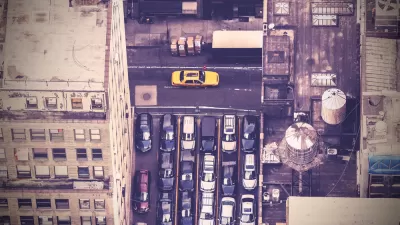Build more lanes, improve operations, let cars do the driving: Are these the best ways to reduce traffic congestion? Richard Mudge thinks a more effective route may be to offer financial incentives to keep people off the roads.
"What if, instead of making everyone pay more, we paid a small number of people NOT to travel during peak periods?" asks Mudge. "These folks would be quite happy. Regular commuters would be pleased as well since overall traffic congestion would shrink, although probably not eliminated."
"But this is a crazy idea! Who ever heard of paying someone NOT to do something? The U.S. farm program pays subsidies to farmers not to grow crops in environmentally sensitive areas and makes payments to farmers based on what they have grown historically, even though they may no longer grow that crop. Of more relevance, several transportation programs exist that do pay people not to travel at peak periods or not to use a single occupancy car."
Mudge goes on to examine four places where such programs have been implemented.
FULL STORY: They Pay Farmers Not to Grow Crops, Don’t They?

Planetizen Federal Action Tracker
A weekly monitor of how Trump’s orders and actions are impacting planners and planning in America.

Restaurant Patios Were a Pandemic Win — Why Were They so Hard to Keep?
Social distancing requirements and changes in travel patterns prompted cities to pilot new uses for street and sidewalk space. Then it got complicated.

Map: Where Senate Republicans Want to Sell Your Public Lands
For public land advocates, the Senate Republicans’ proposal to sell millions of acres of public land in the West is “the biggest fight of their careers.”

Maui's Vacation Rental Debate Turns Ugly
Verbal attacks, misinformation campaigns and fistfights plague a high-stakes debate to convert thousands of vacation rentals into long-term housing.

San Francisco Suspends Traffic Calming Amidst Record Deaths
Citing “a challenging fiscal landscape,” the city will cease the program on the heels of 42 traffic deaths, including 24 pedestrians.

California Homeless Arrests, Citations Spike After Ruling
An investigation reveals that anti-homeless actions increased up to 500% after Grants Pass v. Johnson — even in cities claiming no policy change.
Urban Design for Planners 1: Software Tools
This six-course series explores essential urban design concepts using open source software and equips planners with the tools they need to participate fully in the urban design process.
Planning for Universal Design
Learn the tools for implementing Universal Design in planning regulations.
Heyer Gruel & Associates PA
JM Goldson LLC
Custer County Colorado
City of Camden Redevelopment Agency
City of Astoria
Transportation Research & Education Center (TREC) at Portland State University
Camden Redevelopment Agency
City of Claremont
Municipality of Princeton (NJ)




























